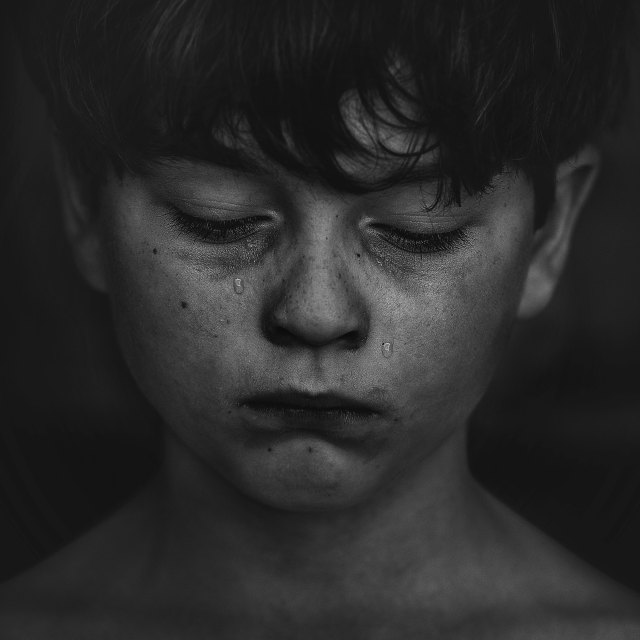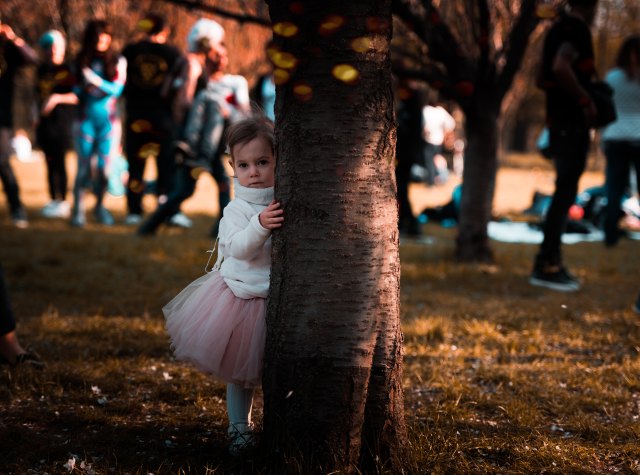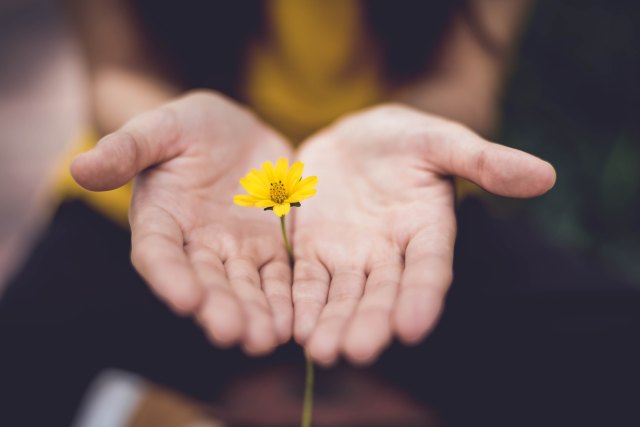The Real Reason we Lose our Cool with our Kids
At this point, I can feel anger bubbling and brewing deep inside of me. My breathing becomes shallow. My body grows tense. I state my request one final time. My seven-year old daughter walks past me as if I were invisible. Now it’s too late. There is no turning back. My anger boils over. Like a deranged monster, I yell at my children to get ready for bed NOW! Every night I promise myself I won’t get mad. Every night it’s the same old story.

The unheard parent. Whether we pester our kids to clean up their toys, get ready for bed or do their homework, it all comes down to the same thing. We are demanding to be heard. Demanding to be respected. Demanding that someone (in this situation, our kids) will confirm that our wishes, needs and feelings are valid.
As we all know, parenting isn’t all unicorns and rainbows. And it isn’t meant to be. We are here on this planet to experience the spectrum of human emotions and to learn, grow and heal. Parenting — in all its frustrating and exhausting glory — offers us a wealth of opportunities for healing.
Whether we realize it or not, our children trigger stored emotions that have been camping out inside of us for a long time, often since we ourselves were little kids. These buried emotions, beliefs and fears affect our current well-being, our perception of the world and how we react to life.
This past summer I watched a dad on the beach with his young family. His five-year old daughter was upset and crying loudly. The dad was growing increasingly tense, stiffening like a stone statue. Agitated, he impatiently asked his daughter what was wrong. His tone sounded like a hissing snake, threatening an attack. The little girl sobbed while explaining that sand had gotten into her ice cream. She knew she would have to throw away her half-eaten treat. Her dad responded with an angry “stop crying!” When the little girl continued to cry, he repeated his demand: “stop crying!” The little girl cried more. “Riley, STOP crying!!”
The longer I watched this man, the more he appeared like a little boy, stomping his feet and shouting. A small child who desperately wanted to be heard. A boy who longed for attention and yearned for someone (likely a parent or care giver) to acknowledge that his feelings and wishes were relevant. Inside this man was an upset little boy who was pouring gasoline on the dad’s fiery reaction to his daughter.

There are two things happening in life. The first is what is actually happening. The second is how we SEE the situation and how we FEEL about what is happening.
For example, my over-the-top hysterical reaction when my girls don’t listen often has more to do with my own inner emotional landscape, than the actual situation. With this in mind, I took my frustration and anger to my meditation in order to shine some light and take a closer look.
Here is what I discovered.
With my eyes closed, I imagined a recent episode when my eldest daughter didn’t listen to me. I allowed my anger to grow in intensity, igniting a roaring fire within me. After allowing myself to fully feel and honour my anger, I then sank into what was underneath.
Open and curious, I became aware of feeling invisible combined with a clenching sensation of fear. Asking to be shown when in childhood I felt scared and invisible, I saw myself at about four years old standing outside a house. At the end of the driveway, I saw my mom deep in conversation with my dad. When little me tried to get my parents’ attention, they didn’t notice me…or possibly ignored me. I could feel some urgency in getting their attention. Perhaps my little brother needed adult care inside the house. I am not aware of the details. But what is clear is that I had been harbouring a little girl’s feeling of helplessness, as well as a fear-based belief that when I am unnoticed or ignored something unsafe could happen.
In a way, this event is seemingly insignificant. Nothing terrible occurred. Nobody was physically hurt. But how my four-year old self FELT about it left an energetic imprint within me. As a result, feeling helpless and invisible with a splash of fear had been feeding my intense emotional response as an adult when my kids didn’t listen to me.

Now you might say — this is ridiculous! Am I seriously suggesting that the emotions we felt and stored within us as small children (like feeling unheard and unseen) can affect how we react and feel when our kids don’t listen to us today? Yes, I believe our unresolved emotional baggage fuels our intense, over-the-top reaction to our children’s behaviour and feeds our ego’s hunger to be heard and respected as a parent.
Like an overflowing storage room that is brimming with dusty boxes and out-dated appliances, we often choose to ignore or deny our accumulated emotions and beliefs. By doing so, we carry our hurt forward from childhood into our adult lives. When we feel unheard or disrespected by our kids (or by our spouse, our co-workers, etc.) it pokes at this stored pain. It triggers all kinds of stored childhood feelings. And it washes up icky old beliefs of not being worthy or that our needs are somehow unimportant and so forth.
Please note that I am not in any way placing fault on our parents, nor is this article about judging ourselves as parents. The intention of this article is to encourage us to take an open-minded, curious look at the emotions and beliefs that are stashed within us. And to see how these stored emotions could affect how we perceive events and trigger our emotional responses to life and our relationships.
Take a moment to reflect on these questions:
Do you often feel disappointed or let down by others?
Do you feel like your kids (or others) disrespect you?
Do you feel helpless and unseen when your kids disregard your requests?
Do you notice yourself reacting to situations in an emotionally over-dramatic way?
For those of us who answered yes to any of the above, you may feel inspired to take a closer look within.

The following short meditation helps us see and release stagnant emotions, opening the door for us to feel calmer, clearer, lighter and more centred.
Meditation
Sit in a quiet space with your eyes closed. Enjoy five deep breaths. With each inhale, witness the breath. Pause. With each exhale, witness the breath.
Bring your awareness to the top of your head to your crown chakra. See the top of your head opening wide. See or feel a bright, sparkly white light as it enters into your crown. Continue to breathe as you witness your entire being filled with this radiant, divine light.
Now bring to mind a situation when your child didn’t listen to you. Allow whatever emotion is present to rise up. Feel the anger, frustration or rage. Don’t look away or deny your emotions. Truly, deeply FEEL them.
Now tune into what emotion is underneath. Perhaps it is a feeling of helplessness. Or maybe there is a belief that you are not worthy of being heard. Not worthy of attention, affection or love. Or perhaps there is a fear that when kids don’t listen something bad happens.
Now ask to be shown a time as a child when you experienced these feelings and beliefs. Ask: “When have I felt this feeling of “___” as a child?”
Rest in quiet and allow an image or memory to present itself. Breathe and soften as you allow yourself to feel the emotions that surface. Stay with the emotions that are present.
There may be tears. Or you might want to give little you (your inner child) permission to verbally express your hurt or anger toward the person who upset you. (This is an exchange in your imagination.) Allowing your emotions to have an expression can help to release these stored feelings.
After you have fully and deeply felt these emotions, it’s time to let this energy go. See or feel this stored emotion as an energy moving up, up, up and out through the top of your head, letting it go. Perhaps it appears like a bubbling creek flowing up and out or maybe the energy shoots out of your crown chakra like a powerful geyser. Breathe, soften and let it go.

Emotions are energies that are meant to move. When emotions are held and stored within us, they can muddy our perceptions, opinions and behaviours.
Raising our voices with our kids can be purposeful. It is also expected that we may feel frustrated when our children challenge us by not listening. The idea of a blissed-out parent who never raises her voice is not realistic. (Or at least not realistic in my world.)
Our life is full of opportunities to grow and heal. Our relationships with our kids are prime examples of this. Feeling triggered by our kids is a gift. When unwrapped and looked at with an open mind, this gift offers powerful opportunities to heal and evolve.
Inner peace and happiness require taking an honest, non-judgemental look at our own unresolved stuff, feeling our stored emotions and letting them go.
***
To read more about Rachel, click here.






